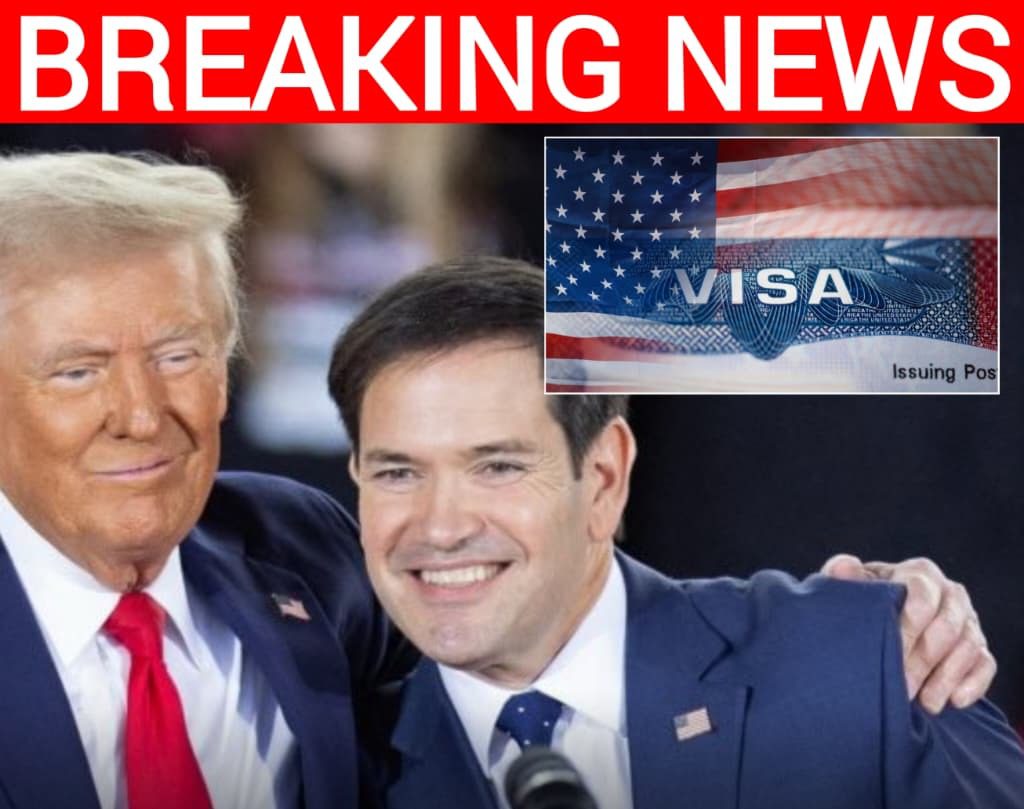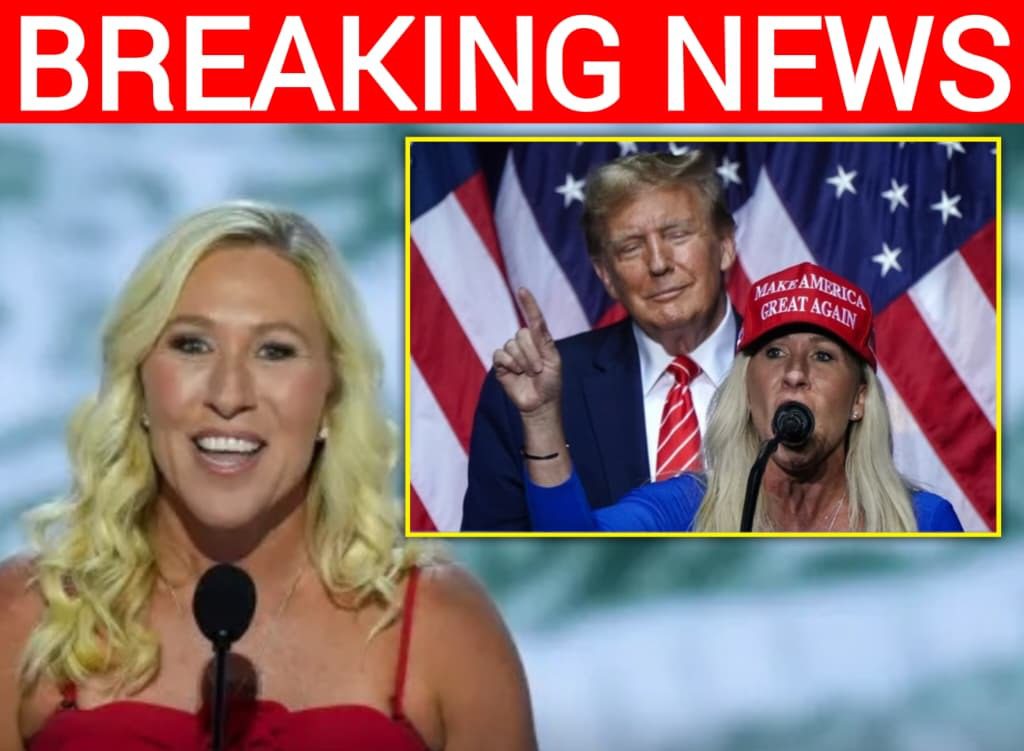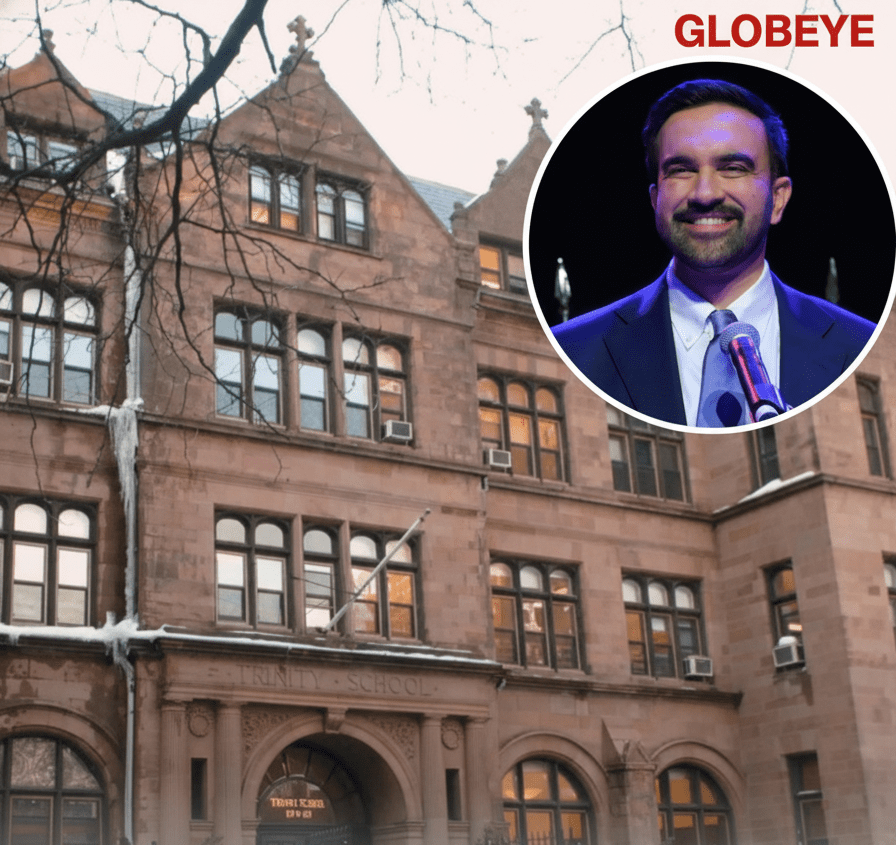President Trump and Secretary Marco Rubio Lead Aggressive Visa Revocation Drive — Over 80,000 Canceled Since January as New Zero-Tolerance Immigration Policy Takes Effect
President Donald Trump’s administration has launched one of the most aggressive immigration enforcement actions in modern American history, with the State Department confirming over 80,000 nonimmigrant visas revoked since January 2025. The sweeping action, driven by Secretary of State Marco Rubio’s zero-tolerance directives, marks a new phase in Trump’s second-term effort to reassert border control, tighten security vetting, and send a global message: the era of leniency is over.
According to verified figures shared with the Washington Examiner and later corroborated by Reuters and the BBC, the crackdown has targeted both student and work visas, particularly among holders linked to criminal offenses, protests, or fraudulent activities. A senior State Department official described the action as “an uncompromising defense of national integrity and law,” confirming that at least 4,000 revocations stemmed from assault or violent crime investigations, while roughly 300 involved foreign nationals tied to politically motivated protests or disruptive activities on U.S. soil.

The administration’s tone has been unflinching. “The safety of the American people is not negotiable,” Rubio told reporters in April when he formally introduced his zero-tolerance visa review directive. “If you come to our country under the privilege of a visa and you commit crimes or engage in conduct that undermines American values, you lose that privilege — period.”
For Trump, this move represents more than policy — it’s legacy-defining. His first term centered on border control, building physical and digital barriers to stem illegal crossings. His second term, now in full motion, appears focused on cleaning house within the legal immigration system itself — ensuring, in his words, that “only those who love America and respect its laws are allowed to stay.”

The 80,000 figure is not a random spike. It’s part of a deliberate recalibration of the nation’s visa oversight program — an area that Rubio and Trump both argued was long overdue for reform. According to internal sources, the administration has expanded coordination between the State Department, Department of Homeland Security, and the Justice Department, sharing data to identify visa holders with criminal charges or pending investigations faster than in previous years.
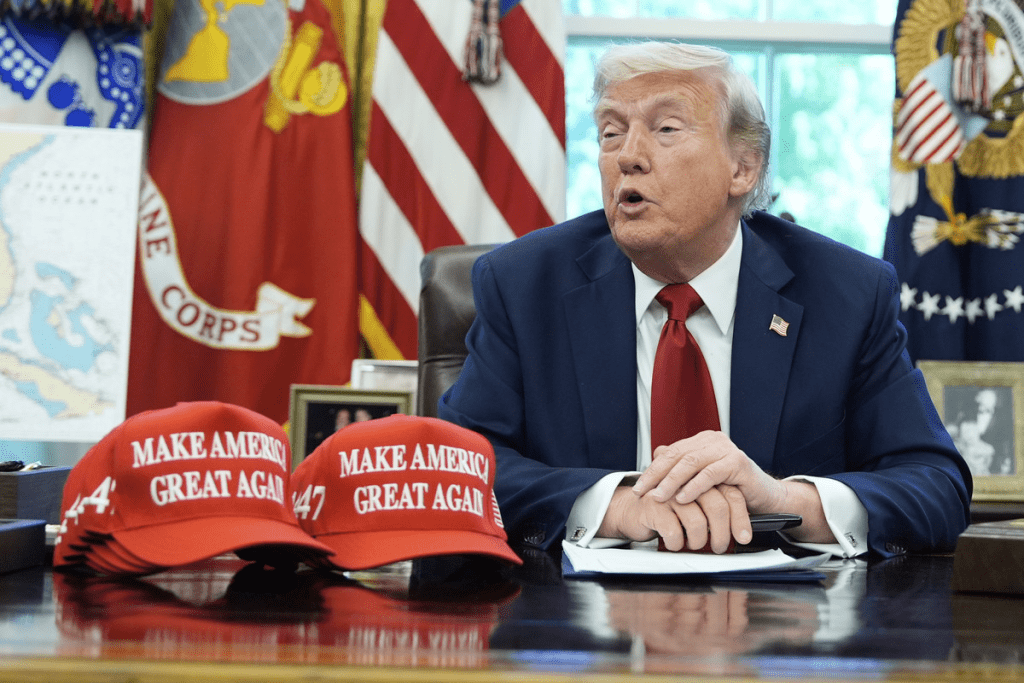
This expanded network now uses AI-assisted background analysis and social media cross-verification — a system first piloted in 2024 that quietly flagged over 15,000 suspicious visa cases before January’s rollout. The results, according to administration officials, are already tangible. “We’re identifying potential threats in weeks, not years,” one State Department analyst said. “We’re no longer reactive. We’re proactive.”
The move has drawn sharp contrast with the Biden administration’s policies, under which nonimmigrant visa revocations rarely exceeded 25,000 per year, even amid security alerts. Trump’s renewed focus, aided by Rubio’s detailed oversight, triples that pace — setting a post-9/11 record.
Supporters argue this reflects exactly what Americans voted for: a stronger, unapologetic government willing to enforce immigration law at every level. “Eighty thousand visas revoked is not cruelty,” said Texas Governor Greg Abbott in a recent press briefing. “It’s accountability. This administration is proving that national security doesn’t stop at the border — it extends to every visa holder who enters this country.”

But the scale and precision of the crackdown have also reignited debate among human rights advocates and liberal media outlets, many of which claim the administration risks overreach. The American Civil Liberties Union issued a statement in October expressing concern that some students and temporary workers had been deported “without due process review.” The State Department, however, dismissed those allegations as “misleading,” clarifying that revocations are executed only after internal and interagency verification, with the right to appeal preserved through legal channels.
Rubio’s approach has been noticeably methodical — reflecting both his experience in foreign policy and his alignment with Trump’s America-First vision. His leadership at the State Department, which was initially viewed with skepticism by some populist conservatives, has quickly proven decisive. “He’s been tougher than anyone expected,” said a senior Republican staffer familiar with the administration’s visa oversight task force. “He’s taken Trump’s directive and turned it into a fully operational policy engine.”
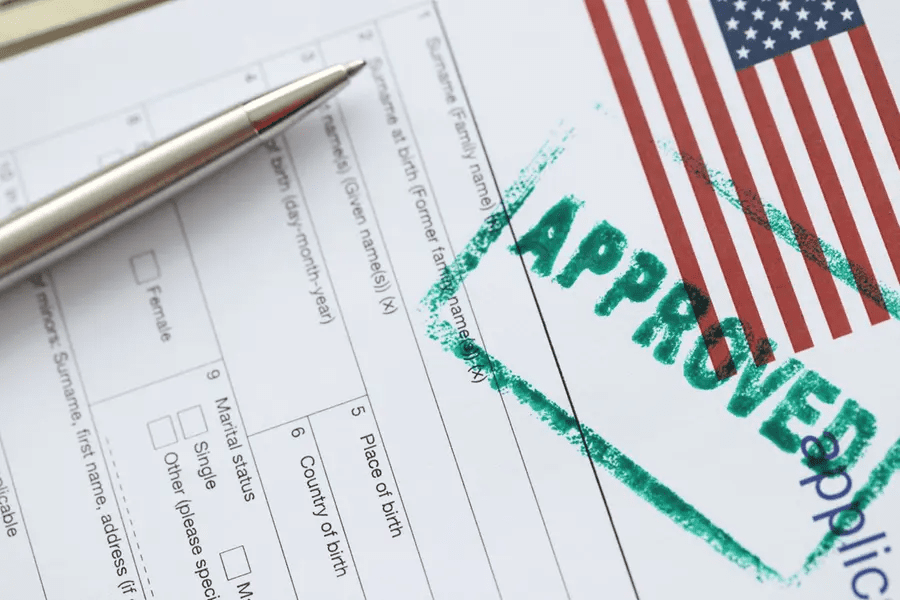
Public sentiment, according to recent Rasmussen and Gallup polls, appears to be on their side. A combined 68% of respondents support “stricter visa enforcement,” while 54% back visa revocations tied to criminal or anti-government conduct, marking a sharp rise in approval from similar polls taken in 2021. “Americans are tired of watching people exploit our systems,” one poll analyst noted. “They see this as restoring fairness, not restricting freedom.”
The effects of the new policy are already visible on the ground. Several universities have reported a small but noticeable decline in international student enrollment this semester, particularly among applicants from regions flagged for higher fraud risk. Meanwhile, companies dependent on H-1B and other skilled-worker visas are experiencing stricter audits — a move the administration insists is meant to protect American workers, not punish global talent.
Trump himself addressed the matter during a rally in Michigan earlier this month, calling the visa revocation campaign “a powerful step toward restoring control.” Standing beside Secretary Rubio, the president emphasized that “every visa revoked is a step toward justice, security, and respect for America’s laws.” The crowd erupted in chants of “USA! USA!” as Trump doubled down: “We’re done being taken advantage of. We’re done letting people come here, break our rules, and laugh at us.”
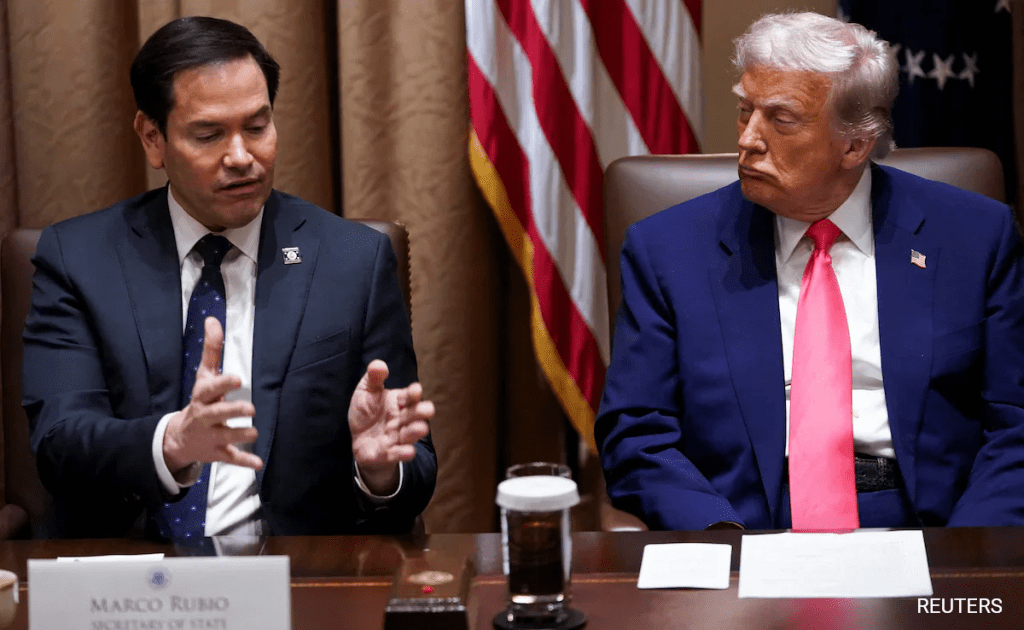
Behind the scenes, insiders describe the policy as both strategic and symbolic — aimed not only at curbing abuse but also reasserting global respect for U.S. immigration authority. “This isn’t about closing America off,” Rubio said during a joint press appearance. “It’s about ensuring that access to America means something again.”
In Washington, even some establishment Republicans have admitted surprise at how seamlessly Trump and Rubio have coordinated on the issue. Their partnership — once a point of speculation during Trump’s cabinet formation — has evolved into one of the most effective working relationships in the administration. “Trump provides the vision, Rubio provides the precision,” said one senior aide. “It’s working better than anyone predicted.”
For critics, however, the speed of the revocations has raised logistical concerns. Immigration attorneys warn that large-scale reviews can strain the appeals system and risk delays for legitimate applicants. Still, federal data suggests fewer than 2% of revocations have been successfully overturned in court — a rate Rubio cites as evidence of “careful and justified enforcement.”
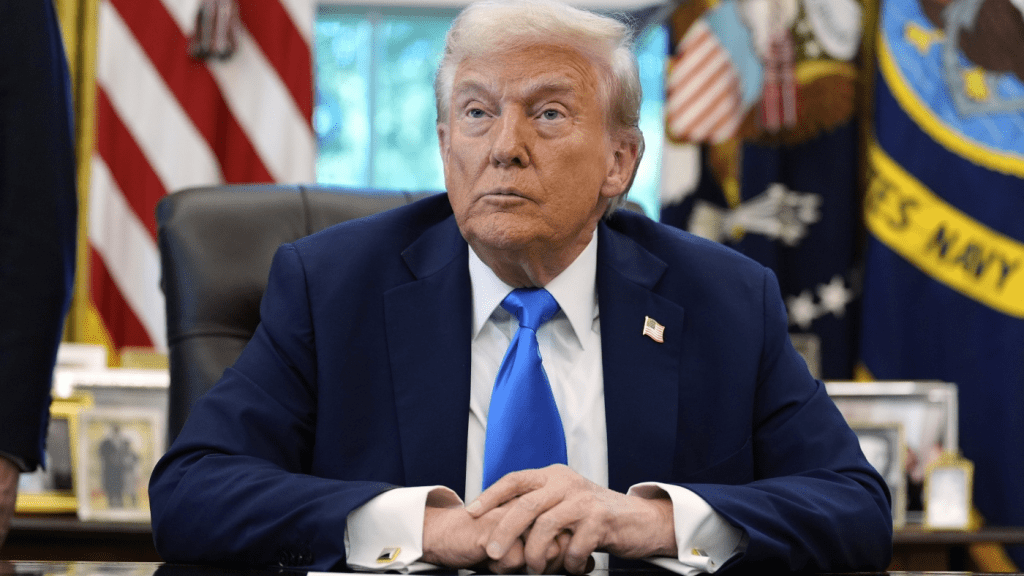
Outside the U.S., the policy is sending ripples through diplomatic channels. Several allied nations have requested consultations to ensure their citizens’ applications are not unfairly targeted. Yet analysts point out that the Trump administration’s firm line may actually strengthen respect abroad. “Foreign governments may protest publicly, but privately they understand the message,” said former U.N. ambassador Nikki Haley. “The United States is back in charge of its own borders and its own rules.”
The administration’s strategy doesn’t end here. According to senior officials, a second phase of the crackdown — informally dubbed “Visa Shield 2.0” — is already in development. It aims to integrate data from foreign law enforcement partners and expand eligibility screening to include digital footprint analysis and travel history synchronization. The rollout, expected early next year, could lead to another 100,000 visa actions before the end of 2026.
For supporters of the America-First agenda, this is precisely the direction they hoped Trump’s second term would take: tough, data-driven, unapologetically pro-sovereignty. “This is what winning looks like,” one Turning Point USA spokesperson said. “Real enforcement, real results, real leadership.”
In many ways, the partnership between Trump and Rubio reflects the administration’s evolution — merging Trump’s populist drive with Rubio’s disciplined execution. Together, they’ve built a policy team that delivers results quickly, often exceeding expectations. And with the 2026 midterms approaching, this visa campaign could serve as one of the clearest examples of how the administration blends political strategy with tangible governance.
If the numbers hold, by next summer the U.S. could see over 100,000 visa revocations — a figure unseen in decades. The administration believes that’s not just an achievement but a new standard. “The goal isn’t to punish,” Rubio reiterated last week. “It’s to protect. America welcomes millions every year, but we must ensure those who stay respect our laws. That’s how sovereignty works.”
President Trump echoed that sentiment at a rally in Ohio, summing up the administration’s stance in a single, punchy line: “We’re not anti-immigrant. We’re pro-America.”
As the dust settles, one thing is clear — the visa crackdown has drawn a line in the sand, reaffirming that this administration intends to uphold the rule of law, even when it’s politically inconvenient. With both Trump and Rubio standing firm, America’s immigration future has entered a new era — one built on strength, order, and a promise to protect the homeland first.
